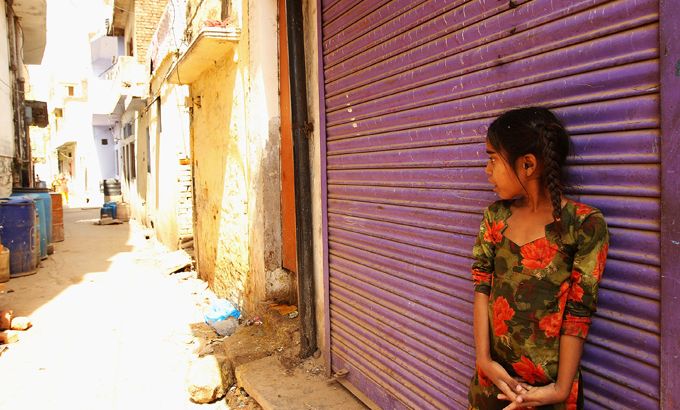Sexual abuse of children ‘rampant’ in India
Human Rights Watch report says abuse “disturbingly common”, especially in schools and state-run child care facilities.

The Indian government has failed to curb the rampant sexual abuse of children, especially in schools and state-run child care facilities, a rights group said.
Human Rights Watch (HRW), in its report released on Thursday, cited the recent fatal gang-rape of a young woman on a New Delhi bus in December, an attack that shook the conscience of the nation and forced people to introspect on the way women are treated in India.
The outcry forced the government to rush through new laws to protect women.
| Confronting India’s culture of rape [Al Jazeera] |
A government panel appointed after the attack to examine the country’s treatment of women also shone a light on the high incidence of child sexual abuse and the failure of the government to ensure the implementation of child protection laws.
Child rights activists say the government needs to implement the panel’s recommendations on preventing child sexual abuse as well.
The new report from HRW said such abuse is disturbingly common, government responses are falling short in protecting children and in treating victims.
The report urges the government to ensure rigorous implementation of child protection laws and strict monitoring of child care facilities.
It calls for an end to traumatic medical examinations and insensitive treatment by police and other authorities, which subject victims to further distress.
There are no clear statistics on the number of child abuse cases in India, primarily because of the low reporting of such crimes.
India’s ministry of women and child said in 2007 that around 70 percent of abused children never reported the matter to anyone.
‘Vulnerability of children’
Despite the low reporting levels, the ministry then said 53.2 percent, or one out of two, children in India, reported having faced one or more forms of sexual abuse.
|
“When the caretaker himself is the abuser, the situation is especially traumatic because then the child has nowhere to go“ – Anuja Gupta, RAHI |
This statistic is even worse for state-run or -funded homes, activists said.
“The vulnerability of children to sexual abuse is very high, and it becomes worse because there is nobody monitoring these children’s homes,” said Anuja Gupta of the Recovering and Healing from Incest, or RAHI, Foundation in New Delhi.
She said in many child care facilities, the abuse was committed by the people in charge of taking care of the child.
“When the caretaker himself is the abuser, the situation is especially traumatic because then the child has nowhere to go,” Gupta said.
Human Rights Watch said the inspections of state-run child facilities were inadequate, with many facilities not registered with the government as mandated by the law.
“Shockingly the very institutions that should protect vulnerable children can place them at risk of horrific child sexual abuse,” said Meenakshi Ganguly, HRW’s South Asia director.
While the government in 2012 passed a comprehensive law to protect children from sexual offences, its efforts to implement the law remained poor or nonexistent, activists say.
While child abuse is a problem elsewhere, in India it is further aggravated by poorly trained police officers who refuse to register complaints or encourage the victims to seek a settlement.
Convictions are rare and cases can languish in the country’s sluggish criminal and judicial process for years, if not decades.